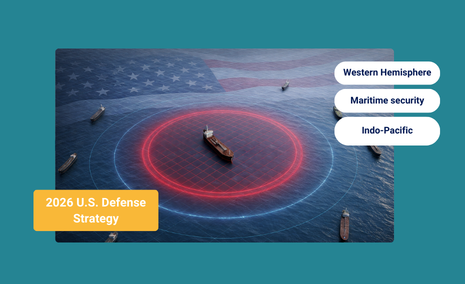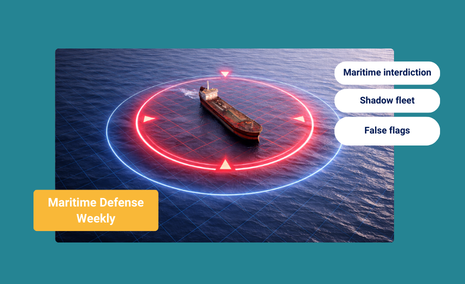
Ocean Freight Forwarder
What is an Ocean Freight Forwarder?
Ocean freight forwarders are specialists who streamline the process of shipping cargo via the ocean or sea. They aren’t ship operators, but act as middlemen who know the ins and outs of international shipping. As explained by Freightos, ocean forwarders “know precisely how to complete any shipment and build the relationships necessary to get the best ocean rates, which they can then pass on to their customers.”
What is the Role of a Freight Forwarder in Sea Freight?
Ocean freight forwarders act as an intermediary between shippers and shipping lines. They offer guidance and advice on packing, labeling, documentation, regulations, and choosing the most suitable container type and route, based on your cargo and budget. They also may be able to help with cost optimization by leveraging their network to negotiate the best possible rates.
Ocean freight forwarders are responsible for managing nearly every aspect of logistics for the shipping operation. The process of booking cargo with ocean carriers involves several steps aimed at securing space on vessels for transportation. Ocean freight forwarders play a crucial role in facilitating this process. They initiate communication with carriers, obtain quotes, negotiate rates, and finalize booking details.
Ocean freight shipments require extensive documentation for compliance with international trade regulations. Forwarders manage paperwork, including bills of lading, shipping manifests, invoices, and certificates of origin.
Forwarders also facilitate the smooth passage of goods through customs checkpoints. They prepare and submit customs documentation, ensuring compliance with import/export regulations. By liaising with authorities and resolving issues promptly, forwarders expedite clearance processes, minimizing risks of delays or disruptions.
What is the Difference Between an Ocean Carrier and a Freight Forwarder?
Ocean carriers own and operate vessels. Their focus is on safely and efficiently transporting goods across the sea. They don’t typically offer services related to pre-and post-shipment logistics. The ocean freight forwarder is the logistics coordinator. They are in contact with the ocean carrier to facilitate the movement of the goods, but they also handle a wider range of services before and after the goods are loaded onto the ship.

The Advantages and Disadvantages of Using Ocean Freight Forwarding
Using an ocean freight forwarding company isn’t necessary for every shipment. The nature of the shipment is the key consideration in deciding whether to outsource to a freight forwarder.
Advantages of ocean freight forwarders:
- Cost-effectiveness: leverage their expertise and network to negotiate even better rates.
- Expertise and experience: navigating international shipping regulations, customs procedures, and port operations is complex. Ocean freight forwarders have the knowledge and experience to handle these tasks efficiently, saving you time and hassle.
- Efficiency and streamlined process: from coordinating pick-up and packing to booking cargo space and managing customs clearance, they handle the entire logistics chain, freeing up time to focus on other important tasks.
- Compliance: stay updated on ever-changing regulations and ensure your shipments meet all legal requirements, minimizing the risk of delays or penalties.
- Consolidation: consolidate smaller shipments from multiple companies into containers, reducing costs and optimizing space utilization.
- Value-added services: offer additional services like cargo tracking, freight insurance, warehousing, and inland transportation, providing a one-stop solution for your logistics needs.
Disadvantages of ocean freight forwarders:
- Limited control: by handing over logistics to a third party, you give up some control over the shipping process and rely on their expertise and communication.
- Supply chain disruptions: from natural disasters and geopolitical events, to unforeseen challenges, ocean freight forwarders need to be agile and willing to make last-minute changes to avoid or minimize delays.
- Dependency on external factors: freight forwarders are often reliant on factors outside their control, like fuel prices, customs regulations, and geopolitical conditions. These impact shipping costs, ETAs, and efficiency, all of which contribute to a possible weakness in service delivery.
- Hidden costs: be aware of potential additional charges, such as documentation fees, terminal handling fees, and surcharges.
Legal Structure of Freight Forwarders
Freight forwarders can operate in various ways, depending on their business model and the specific needs of their clients. Some freight forwarders work as part of larger logistics companies or shipping firms. These companies may offer a range of logistics services in addition to freight forwarding, such as warehousing, distribution, and customs brokerage.
Working within a larger organization can provide freight forwarders with access to resources, infrastructure, and support services that may benefit their clients.
There are also independent freight forwarders who operate as standalone businesses or small firms. These independent freight forwarders may specialize in specific industries, trade lanes, or types of cargo. They often offer personalized services tailored to the needs of individual clients and may have more flexibility in adapting to changing market conditions or client requirements.
Whether working within a company or as independent contractors, freight forwarders play a critical role in facilitating international trade by managing the logistics and transportation of goods for their clients. Their expertise in navigating complex supply chains, customs regulations, and transportation networks helps ensure the efficient and timely movement of cargo across borders.










